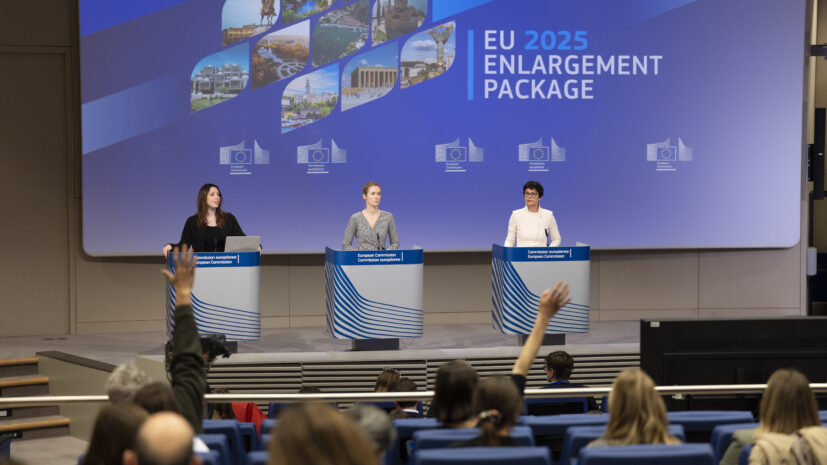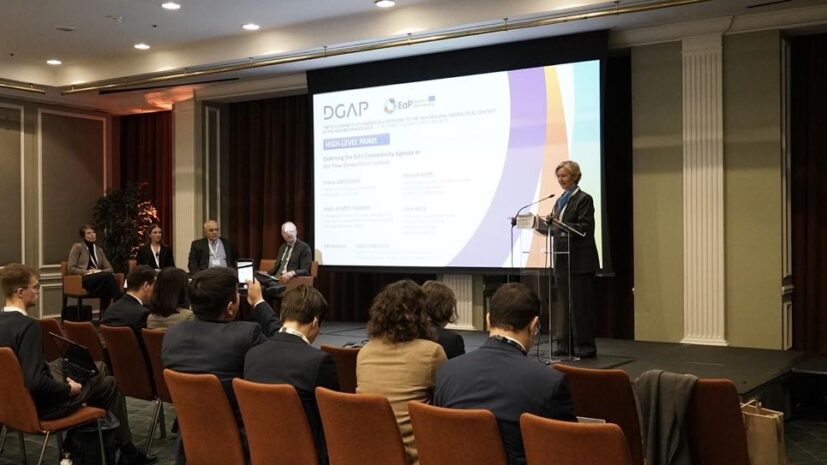
Ukraine and Moldova’s EU Accession: To Decouple or Not?
"What’s Brewing in the Eastern Neighborhood?" brings timely questions to a panel of experts, sparking dynamic debate and showcasing a range of perspectives on the issues shaping the region.
In Favor of Decoupling:
Susan Stewart. Stiftung Wissenschaft und Politik, Berlin.
Decoupling the EU accession processes of Ukraine and Moldova has multiple advantages. First, it would prevent one country from being held back simply because one or more EU Member States are against the other country progressing, as is now the case with Ukraine. Second, it would demonstrate the clear intention of the EU to enlarge, by permitting states where this is easier to achieve to accede relatively quickly. This, in turn, would help the EU and the Member States, including their societies, to gradually adjust to a larger and more complex Union, thus making it easier to contemplate further enlargement. It would also convey to external actors the EU’s seriousness about pursuing its aims, geopolitical, and otherwise. This includes other candidate countries, which could be encouraged by tangible evidence of the EU’s willingness to move forward swiftly where this is possible.
At the same time, the EU needs to continue to work on dismantling the political blockades present in the case of some candidate countries, particularly Hungary’s current blockade of Ukraine on various levels. There should thus be a two-track approach: First, the EU needs to move rapidly concerning candidates that are progressing towards meeting the criteria and are not opposed within the EU. Simultaneously, it must tackle bilateral opposition to other candidates so as not to prolong accession processes unduly. The proposed decoupling should certainly not imply less EU support for Ukraine, either on the accession track or in other respects.
More generally, the gradual but steady accession of individual countries as they meet the criteria could raise awareness within the EU of the growing need to conduct internal reforms and allow them to happen in a coordinated fashion.
Against Decoupling:
Steven Blockmans. Associate Senior Research Fellow, Centre for European Policy Studies (CEPS). Senior Fellow, International Centre for Defence and Security (Tallinn). Visiting Professor, College of Europe (Bruges, Natolin, Tirana).
While the desire to secure Moldova’s EU trajectory ahead of crucial general elections at the end of September is understandable, decoupling the country’s accession from Ukraine would at this moment in time be a strategic misstep for the European Union. Contrary to arguments that prioritize Moldova’s size or current political alignment, a joint accession process remains essential to ensuring consistency in the implementation of the EU’s enlargement policy and, most importantly, sustaining Ukraine’s existential battle for sovereignty.
Decoupling Moldova from Ukraine undermines EU solidarity at a critical geopolitical moment. Ukraine, bearing the brunt of Russian aggression since 2022, has sacrificed enormously in pursuit of the very European values that Moldova also aligns with. To fast-track Moldova ahead of Ukraine could be perceived not as a reward for reform, but as a punishment for being on the front lines. At a time when the Ukrainian army is on the back foot, such a move risks deep resentment in Kyiv, could fracture unity with Chisinau, and is certain to again disillusion candidate countries in the Western Balkans.
Moldova and Ukraine are part of a merit-based process, and each determines the scope and pace of its reforms to align with the EU acquis. In this sense, the candidate countries are not coupled. “Decoupling,” then, is nonsense. The principle of due process excludes the idea that the EU gives candidates a fast track by waiving the need for compliance with the acquis. At this stage, both countries are vulnerable to the fragility of institutions as they face challenges to democratic processes and the rule of law.
Fast-tracking Moldova would further undermine the EU’s credibility as a values-based union, which has greatly suffered because of the double standards applied in responding to severe democratic backsliding and mass civil protests in Georgia and Serbia. The EU must be wary of hollowing out the merit-based principles of enlargement. Enlargement must be a reward for sustained reform, not an instrument of short-term political engineering.
Against Decoupling:
Nikola Xaviereff is the project manager for the Western Balkans in DGAP’s Center for Order and Governance in Eastern Europe, Russia, and Central Asia.
Following Russia’s full-scale invasion, the EU offered Ukraine a membership perspective to support its political survival and anchor it in European structures. Moldova received candidate status then too, largely on the back of Ukraine’s geopolitical weight. Their coupling aimed to balance geostrategic urgency with the enlargement policy’s fundamental principle of merit-based progress, creating an interdependent accession dynamic.
In the case of Ukraine and Moldova, current political dynamics in the European Council work against Moldova, primarily due to Hungary’s objections to advancing Ukraine’s negotiations. This indirectly stalls Moldova’s path, holding both its government and the enlargement process hostage.
From the Western Balkans’ perspective, coupling has proven counterproductive. Albania and North Macedonia were formally coupled when negotiations launched in the summer of 2022. However, bilateral disputes between North Macedonia’s government and Bulgaria (an EU Member State) blocked North Macedonia from opening any chapters, which directly stalled Albania’s progress. By 2024, the EU agreed to de-couple the two, in turn allowing Albania’s government to open twenty-four of thirty-three chapters by now, whereas North Macedonia remains stuck, hijacked by Bulgaria’s veto.
This decoupling has allowed Albania to be upgraded in its EU talks and ensured that the process remains fair. It is grounded in a merit-based approach, which is a motivational tool to reinforce political will and speed up reform efforts in capitals that are otherwise vulnerable to fatigue or frustration.
The Eastern dimension is more complex than the Western Balkans case, however: Moldova’s accession path is closely tied to Ukraine’s momentum, with Moldova’s government effectively boarding the EU accession train behind Ukraine’s.
While Ukraine’s government leads the process and shapes Moldova’s course to some extent, decoupling the two risks stripping Moldova of its strategic relevance and reducing it to a candidate burdened with reform demands, all while remaining highly vulnerable to Russian interference and internal challenges. In this context, Moldova benefits from coupling through the political and symbolic momentum that Ukraine’s front-runner status provides. Alone, Chisinau risks losing attention and support on its EU trajectory.



